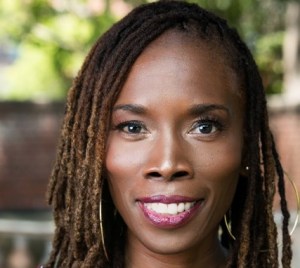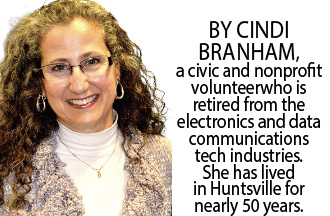By Mylika Scatliffe,
AFRO Women’s Health Writer
Psychology hasn’t always been available to communities of color, especially Black people. Dr. Thema Bryant wants that to change.
Elected president of the American Psychological Association for 2023, her vision is to expand access to psychological care for all people.
According to information released by the APA, Bryant’s vision is to expand psychology far beyond the academy to empower marginalized communities to heal, to reach people who haven’t had access to therapy, and to mobilize the field to use its full power to address widespread trauma, grief and oppression, including the trauma of racism.
“Like just about everything else, there have been barriers to people of color accessing mental health services. Some of those barriers are financial, sometimes the barriers are around the stigma of mental illness and distress and connected with that stigma are cultural or religious notions of whether or not mental health is for an individual or for a community,” said Bryant.
In addition to being a clinical psychologist, Bryant is an ordained minister who spent most of her childhood in Baltimore, surrounded by people of faith. Her father, Bishop John Bryant, was pastor of a prominent Baltimore AME church with her mother serving alongside him, leading various prayer, women, and devotional ministries. Her older brother is also a well-known pastor, who currently heads a large congregation in Atlanta. Bryant spent her sophomore and junior years of high school in Liberia with her family before having to quickly evacuate when the civil war there meant they would no longer be safe.
When asked how she decided on a career in psychology, Bryant revealed her desire to help people from a young age.
“I’ve always been a listener, a giver, and someone who wanted to make things better,” she said.
Reminiscing about an amusing anecdote of her days in preschool, Bryant told the AFRO that when asked what she wanted to be when she grew up, she replied: a house for the homeless.
“I didn’t realize I couldn’t physically be a house. People needed houses so I was going to be a house,” said Bryant in an amused tone.
After being told she couldn’t be a house she decided on nursing but quickly learned it wasn’t for her after helping victims of a particularly bloody and tragic automobile accident. She eventually shifted to psychology.
Bryant began with an overall interest in psychology but her personal experiences with trauma, including witnessing community violence growing up in Baltimore, quickly evacuating Liberia at the start of their civil war and being a sexual assault survivor led her to focus on trauma psychology. She has always been transparent and outspoken about her own experiences with trauma, giving credence to her role as a mental health provider.
As APA president, Bryant wants to see mental health providers become more culturally competent as it relates to those under their care, and to reject certain negative cultural beliefs surrounding mental health care within marginalized communities.
As an ordained minister and clinical psychologist, Bryant has been the target of opposition from both faith leaders and church members on the issues of therapy and mental health.
“I’ve certainly heard the idea that you don’t need therapy for your problems, just pray and let God fix it. Or if you have faith in God you don’t need anything else,” said Bryant. She further explained the misconception in the faith community, particularly in Black churches, that if you believe and have faith in God you’ll always live a joyful and peaceful existence.
Bryant wants everyone to know faith and emotional distress can and do co-exist, and there is nothing wrong or shameful about seeking mental health care.
“You can repeat catchy phrases like ‘if you’re going to pray why worry and why worry if you’re going to pray,’ but God’s timing is not always our timing. People might be stressed about the bills that are due or the children that are in trouble NOW,” said Bryant.

“It’s not even biblical! The prophets, disciples, and David in Psalms all wrote about being worried and in distress. Even Jesus was worried and frightened about what was about to happen to him before the crucifixion and cried and prayed in the Garden of Gethsemane, and they all loved God,” said Bryant. “These worries and fears are simply part of our humanity.”
Bryant notes that trauma, grief, and oppression have become normalized and so prevalent for Black people that their impact is not always taken in.
“If there is a school shooting in the suburbs there are all these resources and the urgency to get counseling for the children who witnessed it, but if a similar situation impacts our children, they’re often expected to just carry on,” said Bryant.
“Children of color are often seen as adults and robbed of their childhood; it’s called ‘adultification,’” Bryant said. She added, “Are we caring and being tender toward these children or just saying ‘Oh, they’ll be alright?’”
Bryant said there is often intense pressure within Black families to not allow anyone to see their weaknesses or vulnerabilities and to always be “on” and “ready” for whatever might happen.
“We learned to survive, but not to heal,” said Bryant. “By definition trauma comes from experiences that overwhelm our usual capacity to cope.”
Bryant wants trauma survivors and mental health practitioners to know that suppressing trauma comes at too high a cost.
“It shows up in the way we parent, in our relationships, our blood pressure, our sleep patterns, the way we regulate and manage our emotions and it affects how we relate to others. Mental health providers need to realize this,” said Bryant.
Trauma and mental health care is not one size fits all. And, while the mental health profession has made some progress in becoming more culturally attuned when providing care, there is still work to do, Bryant said.
“It’s important that mental health professionals are open to honoring people’s cultural differences and humanity,” she said.
These are just a few of the issues Bryant plans to tackle in a public conference planned to take place Oct. 7 this year in Washington, D.C. It will be an opportunity for mental health providers and the public to collaborate and bring to fruition Bryant’s main initiative – to bring psychology to the people.
Bryant descried how many providers believe if they know about depression, or trauma, or grief that they can treat anyone, believing that considering their patient’s race, sexuality, or religious beliefs are unnecessary or political.
“When you have a mental health provider who is affordable but engages in practices that dishonor people’s culture, then it’s not really available,” said Bryant. “So being culturally attuned, affordable and accessible are all important factors for the mental health to reach people who are most in need.”
Help us Continue to tell OUR Story and join the AFRO family as a member –subscribers are now members! Join here!
The post Thema Bryant, president of the American Psychological Association, wants psychologists to become more culturally competent appeared first on AFRO American Newspapers .











